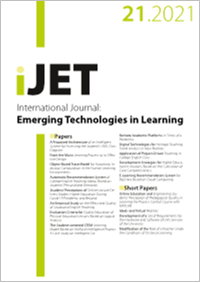Development Strategies for Higher Education Institutions Based on the Cultivation of Core Competitiveness
DOI:
https://doi.org/10.3991/ijet.v16i21.26873Abstract
The development of higher education institutions is the inevitable path towards strong scientific research ability of higher education. Currently, under the impact of the strategies of developing world-class universities, and strengthening the core competitiveness of disciplines, higher education institutions in China are faced with immense challenges. Based on the cultivation of core competitiveness, this paper explores the evaluation and development strategies for the core competitiveness of higher education institutions. The results show that: core competitiveness is a comprehensive intangible ability, and improving core competitiveness helps to clarify the direction and enhancing the quality of talent training. The core competitiveness of China’s higher education institutions has continued to improve, as evidenced by the growth in educational resources, educational fund, and scientific results. The core competitiveness of higher education can be evaluated by the following indexes: school-running philosophy, academic production capacity, management model innovation capacity, campus culture construction capacity, human resource management innovation capacity, and training model innovation capacity. The research results lay a theoretical basis for the reform of higher education institutions.
Downloads
Published
2021-11-15
How to Cite
Wu, Z., & Zhang, Z. (2021). Development Strategies for Higher Education Institutions Based on the Cultivation of Core Competitiveness. International Journal of Emerging Technologies in Learning (iJET), 16(21), pp. 163–176. https://doi.org/10.3991/ijet.v16i21.26873
Issue
Section
Papers



